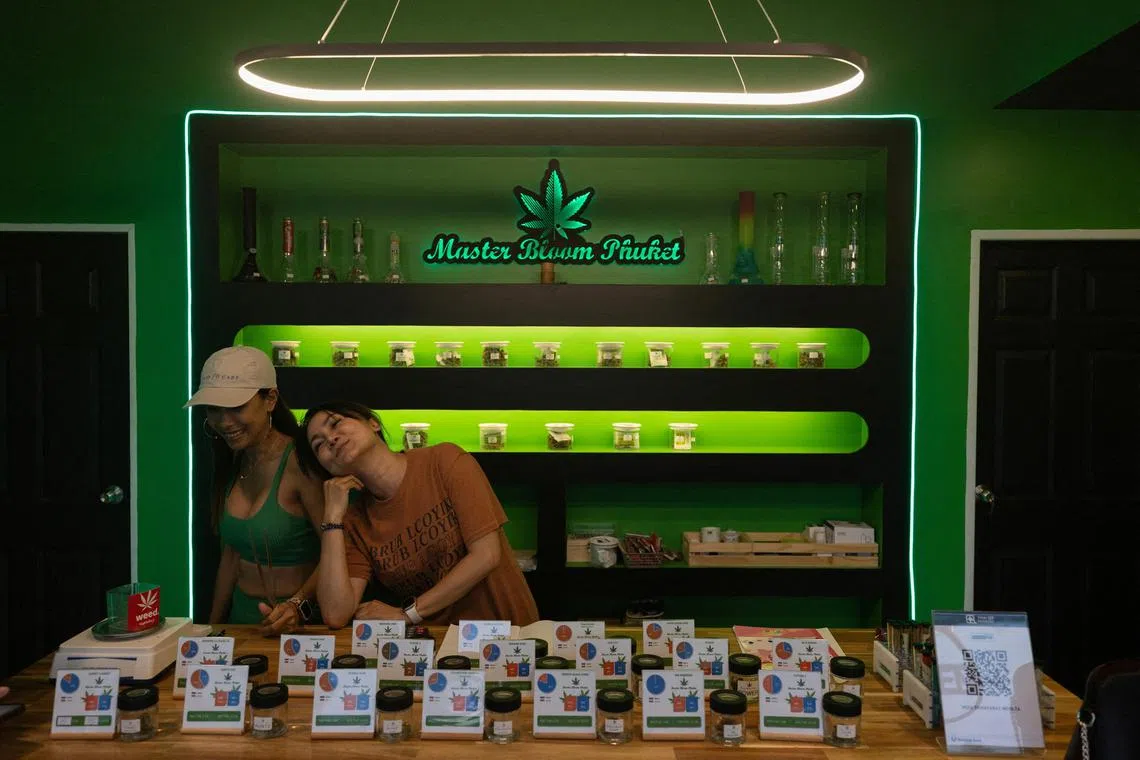Most Thais back PM’s plan to reclassify cannabis as drug: Survey
Sign up now: Get insights on Asia's fast-moving developments

The proposed policy reversal is another blow for Thailand’s nascent cannabis industry, comprising almost 8,000 dispensaries and a large number of consumer-agro firms.
PHOTO: REUTERS
BANGKOK – The majority of Thais support Prime Minister Srettha Thavisin’s plan to reclassify cannabis as a narcotic and limit its use to medical purposes, according to a survey.
About 76 per cent of people who took part in a survey said they “totally agreed” or “rather agreed” with Mr Srettha’s policy U-turn to re-criminalise the plant, according to a survey by the National Institute of Development Administration.
The poll was conducted via phone between May 14 and 15 among 1,310 Thai nationals aged 18 and above. About 23.4 per cent disagreed with the move, while 0.9 per cent declined to answer or said they had no interest in the issue.
The proposed policy reversal is another blow for Thailand’s nascent cannabis industry after decriminalisation was pitched as a way to boost agricultural income and the country’s wellness tourism industry. Mr Srettha has vowed to restrict the use of marijuana to medical purposes.
About 75 per cent of respondents support the restricted use of cannabis for medical reasons, while 19 per cent said the government should not implement any policies to support the use of the plant, the poll showed.
Cannabis advocacy groups last week rallied to protest Mr Srettha’s order, asking the government to reconsider the plan to protect the interests of a rising industry and a large community of growers.
Almost 8,000 dispensaries and a large number of consumer-agro firms have cropped up across Thailand, selling everything from cannabis buds to oil extracts and candy infused with the plant’s active chemicals. BLOOMBERG


